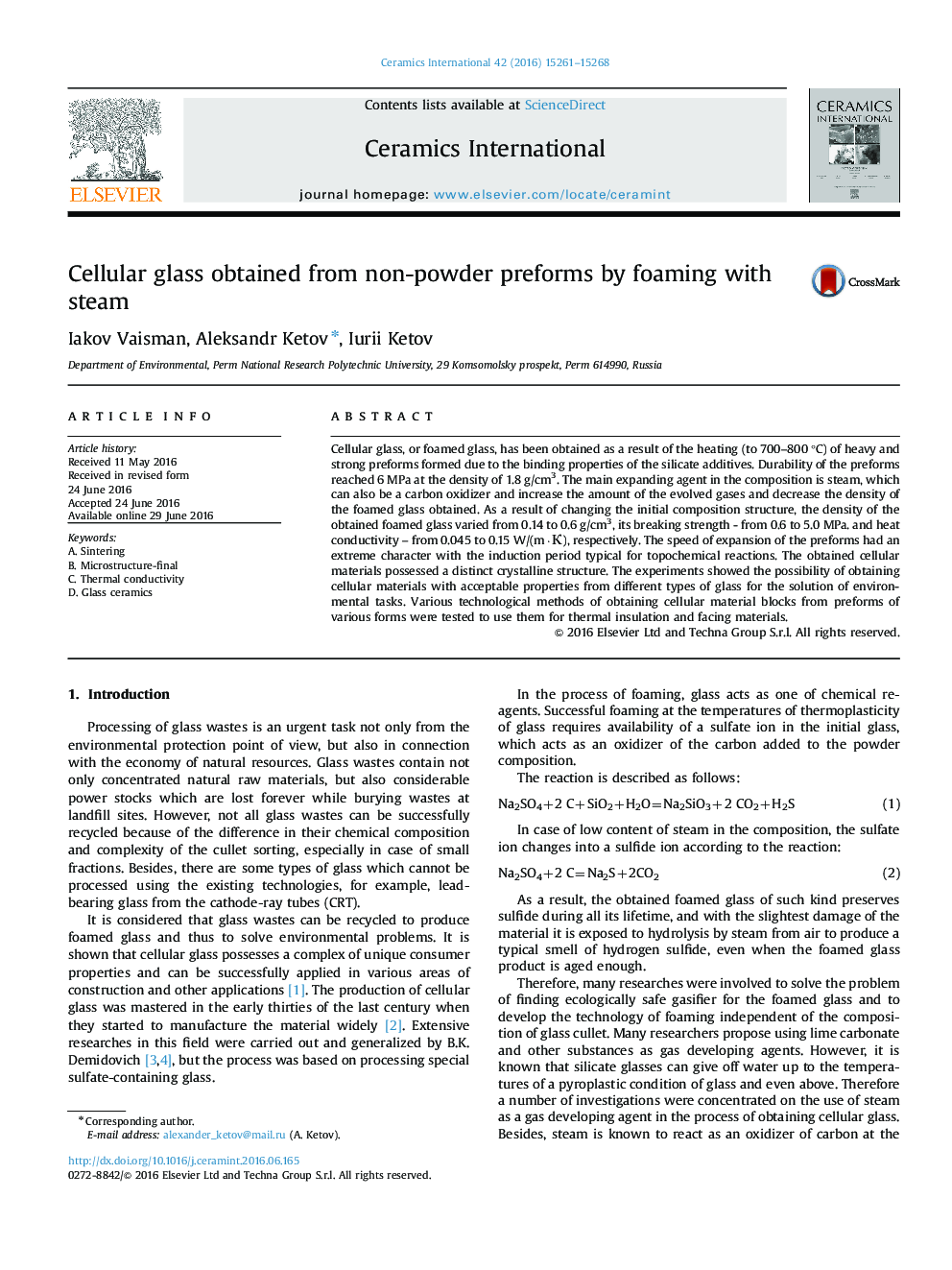| Article ID | Journal | Published Year | Pages | File Type |
|---|---|---|---|---|
| 1458401 | Ceramics International | 2016 | 8 Pages |
Cellular glass, or foamed glass, has been obtained as a result of the heating (to 700–800 °C) of heavy and strong preforms formed due to the binding properties of the silicate additives. Durability of the preforms reached 6 MPa at the density of 1.8 g/cm3. The main expanding agent in the composition is steam, which can also be a carbon oxidizer and increase the amount of the evolved gases and decrease the density of the foamed glass obtained. As a result of changing the initial composition structure, the density of the obtained foamed glass varied from 0.14 to 0.6 g/cm3, its breaking strength - from 0.6 to 5.0 MPa. and heat conductivity – from 0.045 to 0.15 W/(m·К), respectively. The speed of expansion of the preforms had an extreme character with the induction period typical for topochemical reactions. The obtained cellular materials possessed a distinct crystalline structure. The experiments showed the possibility of obtaining cellular materials with acceptable properties from different types of glass for the solution of environmental tasks. Various technological methods of obtaining cellular material blocks from preforms of various forms were tested to use them for thermal insulation and facing materials.
